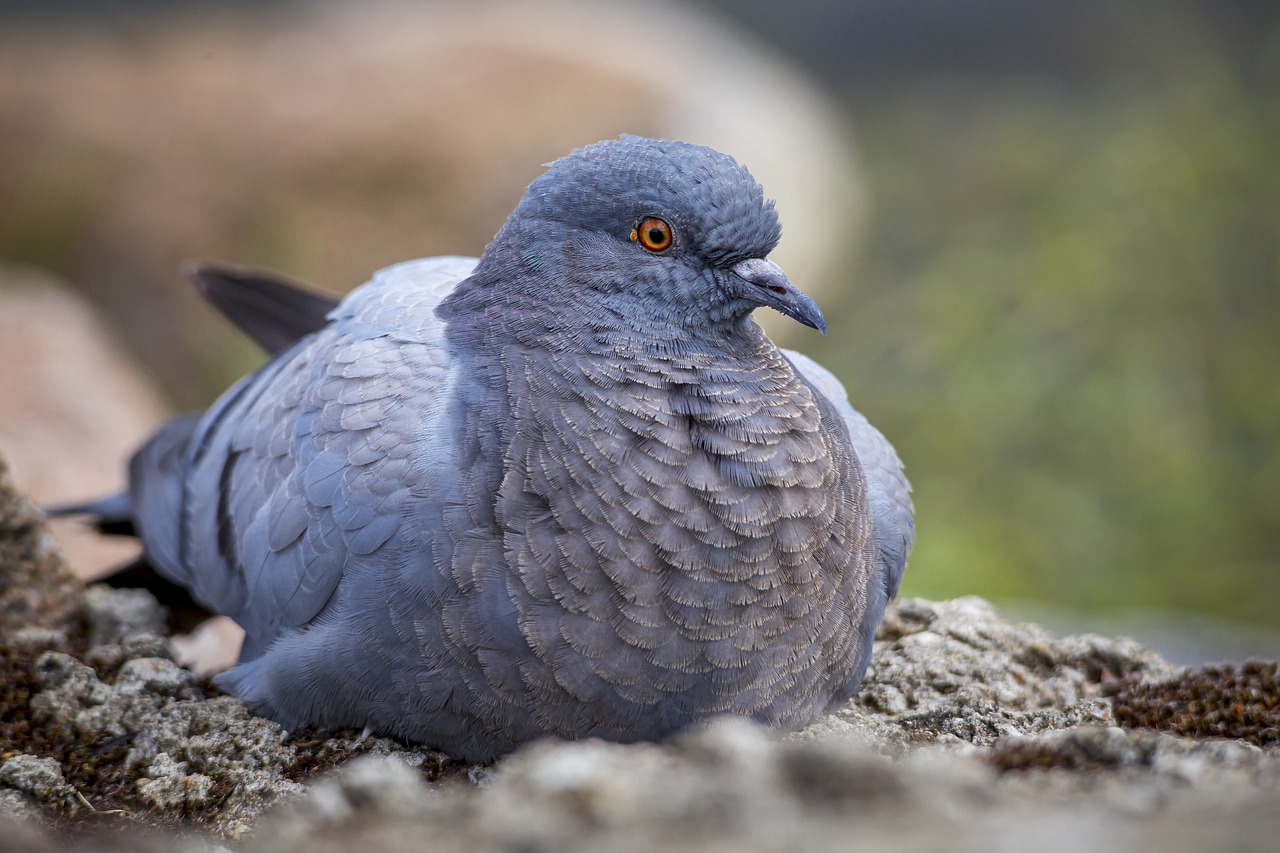The Domestic Pigeon (Columba livia domestica) is a bird that is descended from the wild rock dove (Columba livia), which is native to Europe, North Africa, and parts of Asia. Domestic pigeons are among the oldest domesticated birds, with a long history of breeding and utility by humans for various purposes, including racing, messaging, and ornamental purposes.
Characteristics:
- Appearance: Domestic pigeons come in a wide variety of colors and patterns due to selective breeding. Their plumage can range from plain grays and blues to striking patterns of white, black, red, brown, and more.
- Size: They generally measure between 29-37 cm (11-14.5 inches) in length with a wingspan of 62-72 cm (24-28 inches). Their weight typically ranges from 240 to 400 grams.
- Behavior: Pigeons are social birds that usually live in flocks. They are known for their homing ability, which allows them to return to their nests over long distances, a trait that has been utilized in pigeon racing and messenger services throughout history.
- Diet: They primarily feed on seeds and grains but are opportunistic feeders and may consume fruits, vegetables, insects, and even human food waste in urban settings.
Habitat and Distribution:
- Habitat: Domestic pigeons are highly adaptable and can live in various environments, including cities, towns, farms, and rural areas. In urban areas, they are commonly found around buildings, parks, bridges, and rooftops.
- Distribution: They are found worldwide, especially in urban environments where they thrive near human populations.
Human Interaction:
- Historical Importance: Pigeons have been kept by humans for thousands of years for their beauty, intelligence, and remarkable homing ability. Historically, they were used to carry messages over long distances (hence the term “carrier pigeon”).
- Pigeon Racing: Pigeon racing remains a popular sport in many parts of the world, where specially bred pigeons are released and timed on how quickly they can return home over large distances.
- Symbolism: Pigeons have also been symbols of peace, love, and purity, particularly the white dove variant.
Conservation and Urban Impact:
- Conservation Status: Domestic pigeons are not considered threatened or endangered. However, feral populations in urban environments can be seen as pests due to their droppings and nesting habits.
- Impact on Cities: In cities, large pigeon populations can cause structural damage to buildings and monuments and pose a risk to human health due to the transmission of diseases like histoplasmosis, cryptococcosis, and psittacosis.
Despite their reputation in some urban settings, pigeons are remarkable birds with a rich history of interaction with humans.
Visited 1,030 times, 25 visit(s) today
Views: 1479
Subscribe to the newsletter:
